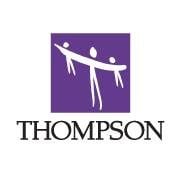McLeod Addictive Disease Center - Monroe
Drug Rehab Center in Monroe, North Carolina
The McLeod Addictive Disease Center - Monroe has been providing comprehensive care for individuals with addictive diseases since 1960, offering evidence based treatments and individualized care plans, accredited by CARF, SAMHSA and holding a state license, and accepting private health insurance.
About This Monroe, NC Facility
McLeod Addictive Disease Center - Monroe, located in Monroe, NC, has been providing comprehensive addiction treatment since 1969. Founded by a local pediatrician, the center focuses on healing those struggling with substance use disorders.
The facility strives to treat each client holistically, crafting individualized care plans to address their unique needs. Their compassionate team understands the complexities of addiction and its impact on families.
Accredited by CARF, SAMHSA, and holding a state license, McLeod offers evidence-based treatments like CBT, DBT, trauma therapy, and medication-assisted treatment. Services range from detox and inpatient rehab to outpatient care and aftercare planning.
- Individualized treatment plans tailored to each client's needs
- Holistic approach addressing mind, body, and spirit
- Experienced staff specializing in addiction and mental health
- Continuum of care from detox through aftercare support
The center specializes in treating opioid addiction, substance abuse disorders, dual diagnosis, and alcohol use disorder. For example, someone battling opioid dependence alongside depression could receive integrated care addressing both issues simultaneously.
If you or a loved one is struggling with addiction, McLeod Addictive Disease Center provides comprehensive, evidence-based treatment. Their individualized approach and continuum of care can support you in achieving lasting recovery.
Genders
Ages
Modality
Additional
Accreditations
State License
SAMHSA

CARF
The Commission on Accreditation of Rehabilitation Facilities (CARF) is a non-profit organization that specifically accredits rehab organizations. Founded in 1966, CARF's, mission is to help service providers like rehab facilities maintain high standards of care.
Conditions and Issues Treated
Substance abuse refers to the intensive and inappropriate use of psychoactive substances. These include illegal drugs, alcohol, and even the excessive use of prescription drugs. Overuse of these substances leads to severe physical or psychological dependence.
Substance abuse is treatable and the duration of treatment and most successful sobriety can require weeks or months of professional care at McLeod Addictive Disease Center - Monroe in Monroe.
Opioid addiction treatment facilities like McLeod Addictive Disease Center - Monroe support people struggling with opioid dependency, which covers illegal and prescription opioids. People often abuse prescription opioids to get high instead of adhering to a medical provider’s directions. Addiction forces people to crave for opioids impulsively without factoring in the dangers these drugs bring to them.
Most opioid addiction treatment plans include detoxification and subsequent medications to ease the process. However, that’s only the beginning. Behavioral therapies and counseling are also necessary to resolve the root cause of addiction. This overall approach decreases the likelihood of falling off the wagon. In some instances, therapies can be done at home.
Levels of Care Offered
This center offers a variety of custom treatment tailored to individual recovery. Currently available are Aftercare Support, Detox, Drug Rehab, Outpatient, with additional therapies available as listed below.
Detox is the stage of recovery where the drugs or alcohol are fully removed from your body. As you stop using, your body metabolizes the last dose or drink and starts sending triggers to your brain to get more. These cues lead to cravings. If additional substances are not obtained you begin to go through withdrawal. Your body begins to reset chemical pathways and other metabolic processes begin which can be extremely uncomfortable.
There are two different ways to detox, with medications and without. Depending on your level of addiction and what you are using, you may need medical supervision. For many drugs and alcohol, the acute phase of detox can be completed in a number of days. Cravings and certain longer-term withdrawal symptoms may remain for longer as your body completely rids itself of the drug and relearns how to function without it.
Outpatient treatment plans cover diagnosis, detoxification, management, and counseling. They are a popular option for those who have graduated from inpatient facilities. Services in North Carolina include medication-assisted treatment (MAT) and individual and group therapy.
Aftercare support plays an important role when sustaining a patient’s full recovery at McLeod Addictive Disease Center - Monroe. Patients also receive assistance in making living arrangements in halfway houses. Career counseling is available for those who want a fresh start. There are also local community programs in Monroe, NC such as Alcoholics Anonymous.
McLeod Addictive Disease Center - Monroe‘s Therapies & Programs
Patients who receive generous support from their loved ones have better chances of completing their recovery. Genetics play a role when it comes to addiction, so it’s better to approach the problem as a unit. Family members can help an individual avoid addiction triggers and guide him or her in making lifestyle changes.
Group therapy is a type of counseling at McLeod Addictive Disease Center - Monroe in Monroe, NC that occurs between a bunch of strangers. The goal of group therapy sessions is to foster hope and a sense of belonging. It also helps to have people who can relate to what you’re going through. Good behaviors can also be contagious.
As a means of managing pain that has plagued them in the past, many individuals turn to drugs and alcohol. Assault, negligence, the loss of a loved one, and other unfortunate events may involve trauma. This treatment, offered and administrated by McLeod Addictive Disease Center - Monroe in Monroe, NC provides individuals the resources to cope with past traumas healthily.
Dialectical behavioral therapy focuses on eliminating negative thoughts such as suicidal thoughts. It is useful in the treatment of patients with uncontrollable emotions. The term “dialectic” means the integration of opposites. In the substance abuse context, DBT refers to accepting the patient’s addiction.
Life skills training helps the recovering person gain the skills and confidence necessary to function well in the world. Life skills training focuses on practical activities like cooking, job seeking, social interactions, and money management. This kind of training at McLeod Addictive Disease Center - Monroe helps fill in the gaps caused by addiction with useful, immediately usable skills.
Alcoholics Anonymous is the original 12-Step program that established the model that other 12-Step programs, like Narcotics Anonymous, follow. 12-Step programs are support groups that are led and run by members of each group. These groups use the “Big Book,” which contains the 12-Step philosophy of recovery and ongoing abstinence from drugs or alcohol.
Contingency Management (CM) is based on the principle that consequences influence the behaviors of an individual. It promotes desired behavior by giving rewards while discouraging unwanted behaviors. CM is used for individuals who need therapy for more than 3 months. It has the advantage of being implemented by family members.
Payment Options Accepted
For specific insurance or payment methods please contact us.
Is your insurance accepted?
Ask an expert, call (888) 674-0062
McLeod Addictive Disease Center Associated Centers
Discover treatment facilities under the same provider.
- McLeod Addictive Disease Center - Hickory in Hickory, NC
- McLeod Addictive Disease Center - Marion in Marion, NC
- McLeod Addictive Disease Center - Monroe in Monroe, NC
- McLeod Addictive Disease Center - Statesville in Statesville, NC
- McLeod Addictive Disease Center - Gastonia in Gastonia, NC
Learn More About McLeod Addictive Disease Center Centers
Additional Details
Specifics, location, and helpful extra information.
Monroe, North Carolina 28110 Phone Number(704) 289-9869 Meta DetailsUpdated April 15, 2024
Staff Verified
What else do people call McLeod Addictive Disease Center – Monroe?
People have occasionally also searched for “McLeod Addictive Disease Center in North Carolina”
Patient Reviews
There are no reviews yet. Be the first one to write one.
Monroe, North Carolina Addiction Information
North Carolina ranks 29th in the nation for overall substance abuse. Many of the drugs abused in the state are illicit, and many of these are opioids. Prescription opioids are readily available due to the high rates of medical workers prescribing them. The number of prescriptions has increased tenfold since the 1980's. Opioid overdoses are the most common type of death in North Carolina.
The drug addiction problem in Monroe, North Carolina, is severe. Drug addiction and abuse rates in Monroe, NC, are increasing. In 2015, 1,077 people died from overdoses - a rate of 14.4 deaths per 100,000 people. There are many different types of addiction treatment available in Monroe, and people can find the best programs. 12-step programs are popular among those who are recovering from addiction.
Treatment in Nearby Cities
- Black Mountain, NC (108.0 mi.)
- Winterville, NC (182.0 mi.)
- Summerfield, NC (90.9 mi.)
- Black Creek, NC (154.5 mi.)
- Star, NC (51.6 mi.)
Centers near McLeod Addictive Disease Center - Monroe
The facility name, logo and brand are the property and registered trademarks of McLeod Addictive Disease Center - Monroe, and are being used for identification and informational purposes only. Use of these names, logos and brands shall not imply endorsement. RehabNow.org is not affiliated with or sponsored by McLeod Addictive Disease Center - Monroe.









